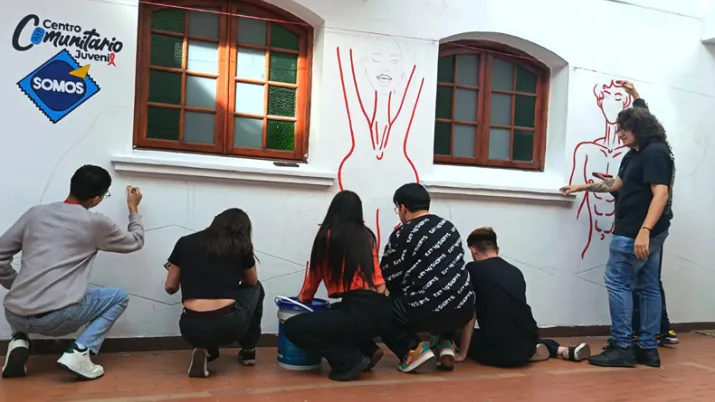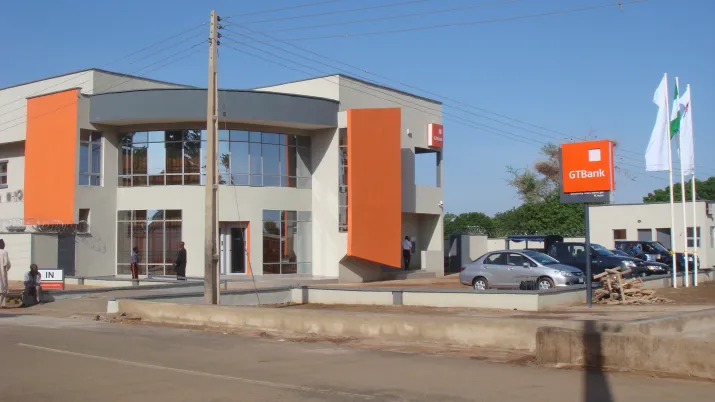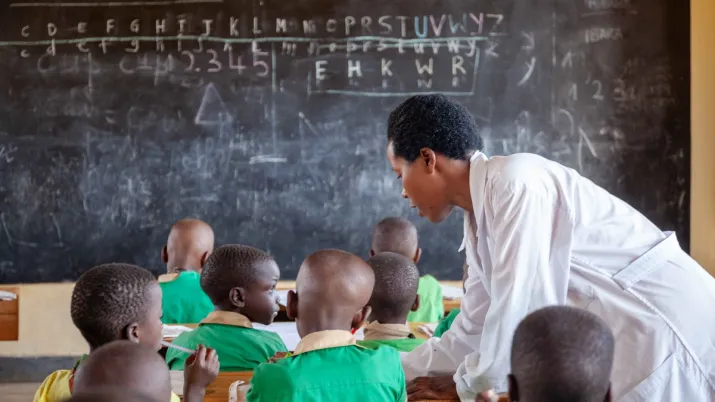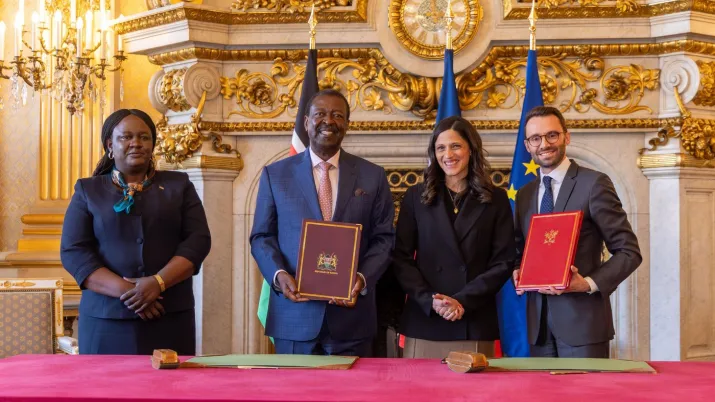Share the page
Fighting Inequalities
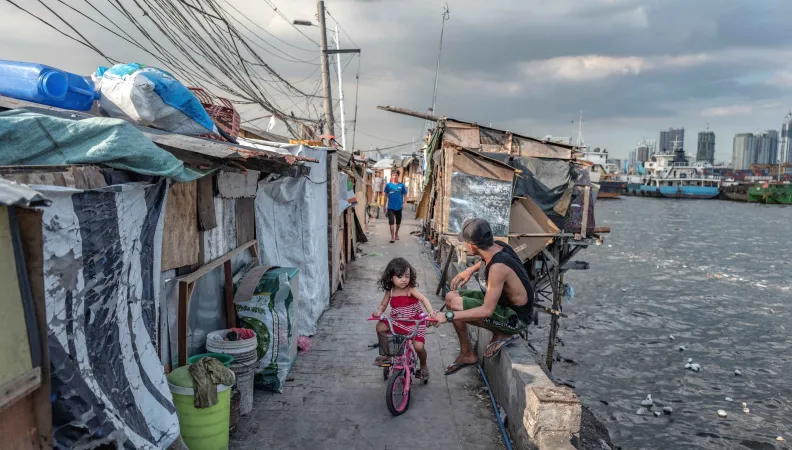
Our commitment
Global inequality had been declining before the COVID-19 pandemic, but the crisis triggered the sharpest increase in disparities in 30 years. In 2024, 92% of the world’s population were living in countries where inequality remains moderate or high. By 2030, more than 600 million people, 80% of them in sub-Saharan Africa, are still expected to be living in extreme monetary poverty.
In a context of overlapping crises (economic, social, climate-related and geopolitical) that are undermining social cohesion and threatening improvements in living conditions, AFD Group has made reducing inequality and promoting inclusion a central pillar of its work. Since 2017, AFD has stepped up its efforts through major initiatives and tangible results, notably those supported by research from the EU/AFD Research Facility on Inequalities.
AFD also took part in the second World Summit for Social Development, held in Doha in November 2025. Its participation reaffirmed AFD’s commitments to reducing inequality and advancing inclusion, alongside other key priorities such as gender equality, social protection, education and vocational training, decent work, and just transitions.
This commitment is reflected in a clear target: by 2026, 50% of projects financed by AFD should include a primary or secondary objective related to reducing inequality, promoting inclusion of disadvantaged populations, or strengthening social cohesion. This ambition will be revisited, raised and adapted across all entities of AFD Group (AFD, Expertise France and Proparco) through 2029.
A results indicator
Since 2022, AFD Group has used an Equality and Inclusion indicator to measure and strengthen its contribution to Sustainable Development Goal 10 (Reduced Inequalities). This indicator is aligned with the Inequality Marker (I-Marker), developed and used by the European Commission’s Directorate-General for International Partnerships (DG INTPA).
AFD’s Equality and Inclusion indicator is based on AFD's Sustainable Development Analysis & Opinion Mechanism, specifically the section on “Social cohesion: reducing inequalities and promoting inclusion.”
It is structured around six sub-criteria that address a wide range of inequality-related challenges and responses:
- Preventing conflict and strengthening social cohesion.
- Ensuring fair, sustainable, and effective access to quality essential goods and services, and improving living conditions.
- Expanding real opportunities and capacities for decent, sustainable work and income growth.
- Supporting redistributive policies and universal social protection systems.
- Promoting participation and inclusion in political and social life.
- Advancing human rights and combating discrimination.
Reducing inequality, a question of survival
Our approach
With its new cross-cutting roadmap Lien social (2025–2030), AFD Group reaffirms its commitment to reducing multidimensional inequalities and promoting inclusion across all of its financing activities.
The Group is committed to supporting the development of more equitable and inclusive societies. This goal will be reflected in all its operations, with a focus on two cross-cutting objectives:
- Reducing multidimensional inequalities and promoting inclusion.
- Promoting gender equality through a transformative feminist approach.
To help shape development pathways that reduce inequalities and meaningfully include disadvantaged populations, AFD Group will rely on three priority areas of action:
- Supporting inclusive and redistributive public policies, whether social, environmental, fiscal or budgetary, as well as financing infrastructure that improves access to essential services in underserved areas.
- Strengthening the fairness dimension of ecological transitions, ensuring that the benefits are shared by all.
- Systematically integrating the reduction of inequalities and the promotion of inclusion into all areas of intervention.
AFD and the fight against inequality: the path to fairer development
AFD Group is committed to more systematically integrating equality and inclusion into its financing activities by supporting:
- Public policies that help reduce inequality in areas such as education, health, social protection, and ecological transition
- Redistributive fiscal and budgetary policies that promote greater equity and generate increased public resources for social programs
- Infrastructure projects that improve access to essential services in the most underserved areas
Public policy dialogue is a key lever. This includes support through policy-based loans for fiscal reform or inclusive social services, with the goal of strengthening citizen participation, particularly among disadvantaged populations, and with the involvement of civil society organizations (CSOs). This engagement also contributes to restoring trust between institutions and the public.
AFD also uses diagnostic and analytical tools to assess inequality — including country diagnostics, fiscal and budgetary analyses, and evaluations of project equity — in close collaboration with institutional partners and research networks. Efforts focus on countries undertaking "just" transitions (such as South Africa, Mexico, Colombia, Indonesia) and on the most vulnerable areas, whether economically, socially or environmentally, with close attention to the risks of social fragmentation.
The Group also finances actions that promote fundamental human rights, including in health, education, justice, and social protection. Proparco has adopted a dedicated Human Rights Risk roadmap to reinforce this approach.
Finally, AFD Group remains actively engaged on migration-related issues, supporting:
- Migration policies that respect human rights
- Protection for people vulnerable to forced displacement
- Recognition of migration as a driver of development and social cohesion
Climate change exacerbates inequality and heightens the risk of social tensions, while phasing out carbon-based systems can undermine employment and deepen poverty. In response, AFD Group supports a just ecological transition that balances climate ambition, social justice, and economic inclusion.
Its financing aims to:
- Develop local policies that anticipate needs related to employment, training, reskilling, and social protection
- Strengthen inclusive planning and governance by identifying both obstacles and opportunities, particularly in green jobs and support for the most vulnerable populations
- Ensure that transition policies are redistributive and progressive, using appropriate fiscal, budgetary, and social instruments
A 400 million euro policy-based loan in South Africa illustrates this integrated approach, combining energy transition with poverty reduction, lower unemployment, and reduced inequality. Within such programs, the Group also promotes French expertise — from research and training to civil society — in areas such as planning, inclusive governance, and protective policies.
Lastly, particular attention is given to younger generations to support their economic, social, and environmental inclusion and to advance intergenerational climate justice.
AFD Group is strengthening its commitment to making inclusion and the reduction of inequality a guiding principle across all its interventions. In every sector, including energy, water, transport, housing, and financial services, the Group supports public and private programs that ensure equitable access to essential services and promote policies that foster quality employment and inclusion for the most disadvantaged populations.
To put this ambition into action, AFD Group uses a range of tools:
- Prioritizing vulnerable populations and underserved areas, such as through the National Sanitation Program for Informal Settlements in Tunisia.
- Removing financial, physical, or cultural barriers to accessing essential services, as demonstrated by the adapted pricing system introduced in the electricity access program in Burundi.
- Supporting the inclusion of young people and encouraging civic engagement.
- Developing innovative financing solutions, such as credit lines and social bonds, with measurable social objectives.
- Supporting vulnerable populations in crisis or conflict zones, particularly through the Minka Peace and Resilience instrument, which finances crisis prevention and response projects.
- Integrating social dimensions into climate and biodiversity projects, such as support for the implementation of the Philippines’ national climate change reform program.
- Involving local communities directly in the design and management of services.
- Strengthening the capacity of public and private institutions so they better integrate inequality and inclusion into their practices.
- Promoting calls for proposals that include stronger social inclusion criteria.
AFD Group also works at both the European and international levels to advance the integration of inequality issues into development policies.
At the European level
AFD draws on the Team Europe approach and the dialogue launched through the EU-AFD Research Facility on Inequalities to strengthen cooperation among development donors. As several European partners deepen their work on inequality, AFD Group’s initiatives will help mobilize new European funding, in line with the European Union’s economic diplomacy strategy, which now incorporates the fight against inequality and the promotion of social inclusion.
At the international level
AFD Group supports several key initiatives:
- Engaging in dialogue with the OECD’s Development Assistance Committee (DAC) on inequality and poverty, building on an AFD-OECD partnership carried out in 2023 and 2024, to support the work and contributions of the community of practice on poverty and inequality
- Encouraging the mobilization of all actors and funding through the Finance in Common (FiCS) coalition for social investment, whose first meeting was held on 20 March 2024
- Continuing strengthened cooperation between AFD and the International Labour Organization (ILO), through FiCS and operational and financial partnerships, particularly under various partnership agreements (COPARs)
- Participating in the work of the task force on “Inequality and Social-related Financial Disclosures,” led by the OECD and UNDP, which aims to develop a framework of recommendations for companies and investors to assess and report on their social inequality impacts. This work will be aligned with ongoing discussions around the EU Corporate Sustainability Reporting Directive (CSRD)
In addition to its commitments on equality and inclusion, AFD places particular emphasis on gender equality and the promotion of the rights of women and girls, in line with France’s new International Strategy for a Feminist Diplomacy, launched in March 2025.
Sport and culture, as powerful drivers of inclusion and social cohesion, also play an increasingly important role in AFD’s work. By supporting young people’s access to education, health, and employment, these sectors help strengthen social ties and contribute to sustainable and inclusive growth.
On the ground
Below, you’ll find projects, news, and publications related to this topic — all in one place.
Related topics
News & events
How can we ensure equitable technological development in the age of AI and data?
Published on January 27, 2026
Key figures
-
€4.5 billion committed by AFD in 2024 to finance 110 projects aimed at reducing inequality and promoting inclusion
-
4 million euros invested by AFD to finance research projects on inequalities as part of the EU Facility
-
At least 50% of AFD projects in 2024 included a goal related to equality and inclusion, either as a primary or secondary project objective

